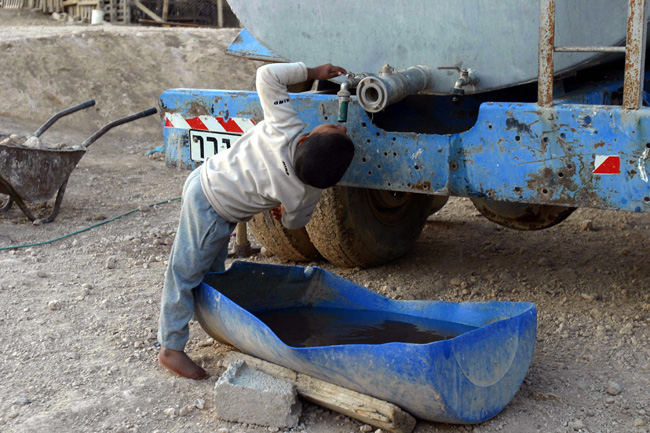Report to UN Committee on Rights of the Child Details Inequality, Rights Abuses Against Arab-Palestinian Children in Israel
Adalah submitted a report to the UN Committee on the Rights of the Child (CRC) in October 2012 to assist the CRC in developing its “List of Issues” for Israel following the submission of its Third Periodic Report to the Committee. The CRC monitors states’ implementation of the UN Convention on the Rights of the Child, which Israel signed in July 1990 and ratified in August 1991. The CRC will conduct its preliminary review of Israel in Geneva during its pre-sessional working group meetings on 8-12 October 2012.
Adalah’s report focused on inequalities in health care and education between Arab and Jewish children citizens of Israel, as well as other breaches of Israel’s obligations under the Convention on the Rights of the Child with regard to Arab-Palestinian children, including the ban on family unification between Palestinian families. The CRC has already addressed these inequalities, calling on Israel in its Concluding Observations as far back as 2002 to “ensure that Israeli Arab children receive the same level and quality of services as Jewish children,” and criticizing the discriminatory distribution of educational and health state resources.
Among other issues, Adalah’s report highlighted:
Health
- The lack of statistical information and analysis of Arab Bedouin citizens living in unrecognized villages in the Naqab in general, and children in particular
- The lack of health facilities in Arab cities and towns
- The effects of lack of drinking water on children’s health in the unrecognized villages
- Gaps in infant mortality rates, which stand at 2.9 deaths per 1,000 live births among Jews, 6.5 per 1,000 in the Arab population, and 11.5 per 1,000 live births in the Arab-Bedouin population (2008)
- Adalah’s petitions demanding adequate health services for the Bedouin population, including the lack of “mother and child” health clinics in the Bedouin villages in the Naqab, and Adalah’s and Physicians for Human Rights – Israel demand that a discriminatory law that conditions state child allowances on child vaccinations be cancelled
- The current lack of state support for Arab children with disabilities; for example, out of 70 units for therapeutic child development, only 10 are located in Arab towns, and 12 of 82 rehabilitative day care centers in 2011 were in Arab towns
Education
- In Grade 5, 79% of Jewish children pass the Hebrew examination, while only 61% of Arab children pass the equivalent Arabic examination
- In 2007, 54.1% of Arab women and 39.5% of Arab men received high school graduation certificates, compared to 70.5% of Jewish women and 61.1% of Jewish men
- Arab Bedouin schools often lack basic services and facilities, including toilets, electricity, telephone and internet connections, and safe access roads. As a result of this underfunding, only 15% of Arab Bedouin high school graduates receive scores high enough to attend university
- Schools for Palestinians are underfunded, and located far from students’ homes, leading to lower success rates and higher drop-outs. For example, the Arab elementary school in Akbara, Safed was opened under court order in 1994. The state closed the school, claiming low enrollment, in 2006, forcing neighbourhood children to travel 50km daily to reach the nearest school
- Discriminatory educational policies, including the lack of teaching on Arabic culture, history, and Islam/Christianity, and compulsory teaching hours on Jewish culture, history and religion, in the Arab school curriculum, which is fully determined by the Ministry of Education
Ban on Family Unification
The Citizenship and Entry into Israel Law (Temporary Order) (2003) sweepingly denies spouses of Israeli citizens, if they are Palestinians from the OPT, the right to acquire Israeli residency or citizenship status, with extremely limited exceptions, separating children from their parents, in violation of the Convention on the Rights of the Child.
Read more:
Adalah’s publications on the Citizenship Law
Israel’s Second Periodic Report and responses to the CRC January 2010
Adalah’s Interventions to UN Committees














